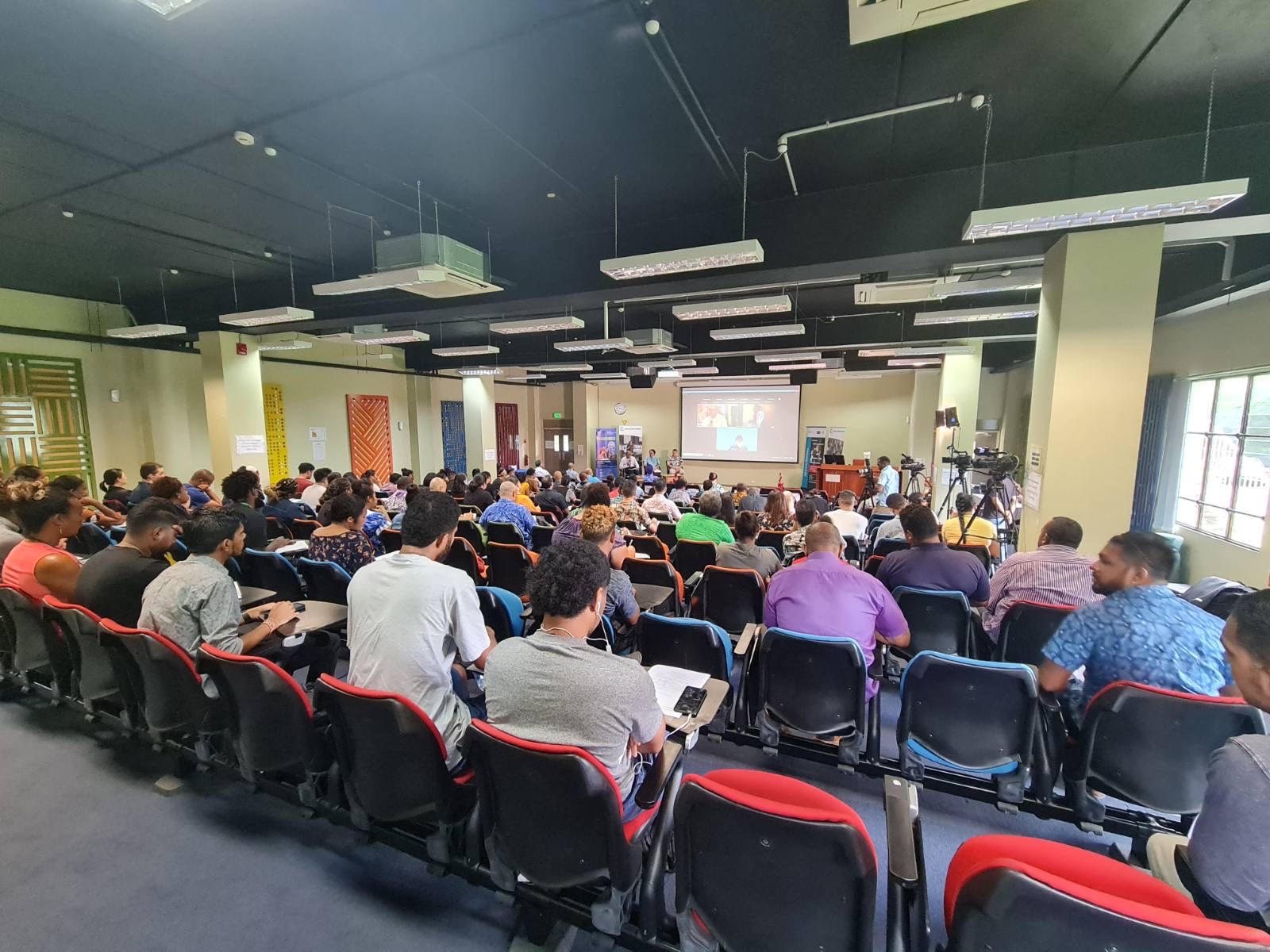Related News

As the world searches for a strategy to recover from the effects of the COVID-19 Pandemic and natural disasters, The University of the South Pacific (USP) and the World Bank hosted a seminar to engage and discuss innovative ways towards inclusive economic recovery in the Pacific.
The seminar, held on 1 April, was the first in a planned series of seminars that will play an essential role in the region.
In his welcome address, the Head of the School of Accounting, Finance and Economics (SAFE), Dr Nacanieli Rika, emphasised that the theme was selected in the context of COVID-19 and other more recent challenges faced in various countries across the Pacific. He encouraged all participants to listen and address issues actively.
Dr Rika mentioned that good leaders asked great questions, and he encouraged all the participants to consider this from the start.
“Great questions, in my opinion, are important because they can spark innovation. Great questions served as the foundation for robust debate and research, which informed sound policies and delivered strong results,” he added.
USP Vice-Chancellor and President, Professor Pal Ahluwalia acknowledged the presence of all the participants and expressed his gratitude to the World back for the continuous support, collaboration, and jointly funding and organising the dialogue.
“We are very grateful to the World Bank for this fantastic collaboration. We can support Pacific Island countries in ongoing efforts to boost social and economic recovery and strengthen public health and climate-related resilience in the region,” he added.
He said the seminar aimed to establish an inclusive engagement platform through public dialogue to seek solutions for contemporary development issues and to discuss sustainable economic responses and recovery for many of the Pacific Island countries.
The World Bank President Representative- South Pacific, Mr Lasse Melgaard, mentioned that the last two years had been exceptionally challenging, and COVID-19 had been a period of rapid learning.
He hoped to use the seminar as an opportunity for more learning and dialogue to better understand what is needed for recovery that could elevate the region’s resilience to future shocks. He looked forward to seeing where the ideas and solutions discussed at the seminar could lead to.
Pacific Islands Forum Secretariat, Deputy Secretary-General Dr Filimon Manoni hoped that such a discussion would raise awareness of the challenges and promote regional dialogue on social and economic recovery strategies beyond the pandemic.
“This discussion will contribute to broader public policy settings that will support specific countries’ COVID-19 recovery strategies,” he stated emphatically.
He predicted it would take many years for Pacific countries and economies to recover from the socio-economic losses caused by the pandemic and climate disasters.
However, he stated that a positive outcome of the pandemic was that it drove individuals to think outside the box in terms of economic development, such as the digitisation of government services and the proliferation of e-commerce platforms, which are new ways of fostering economic development in difficult times.
Dr Manoni stated the seminar was a significant opportunity and that, despite the uncertainties that our region was facing, he was optimistic that our economies and communities would become more robust and resilient.
The discussion panellists included Lead Economist and Programme Leader, David M. Gould; Marketing Manager Pacific Tourism Organisation (SPTO), Zaheer Hassan; Governor Reserve Bank of Fiji, Ariff F. Ali; and Executive Director PIANGO Secretariat Emeline Siale Ilolahia.
For full video, click here https://youtu.be/e90uGwz3tUY